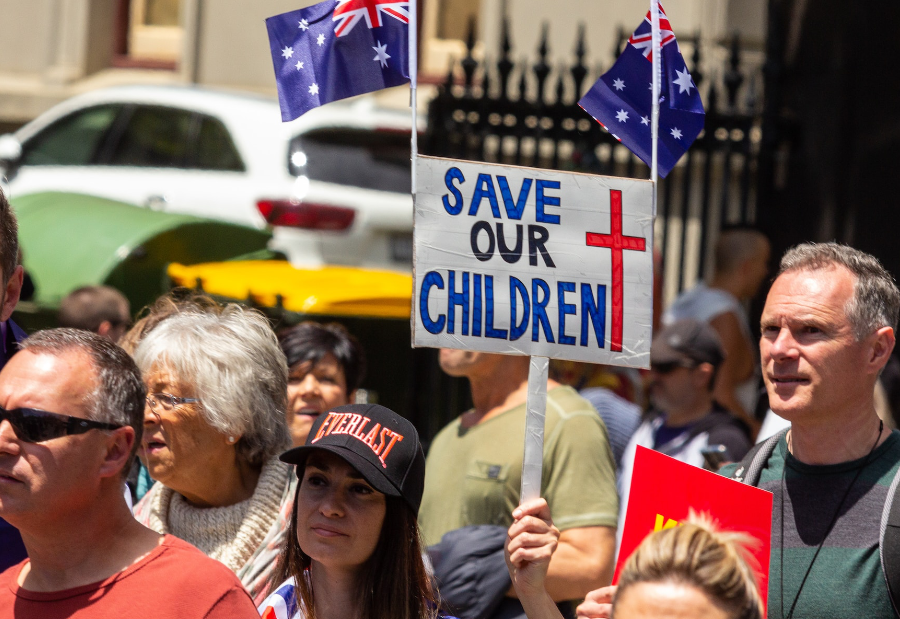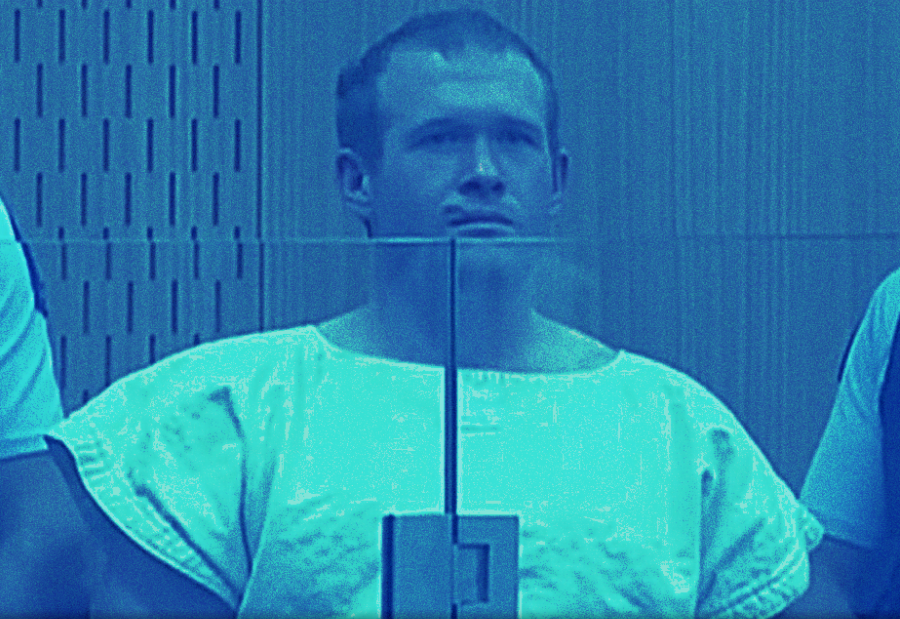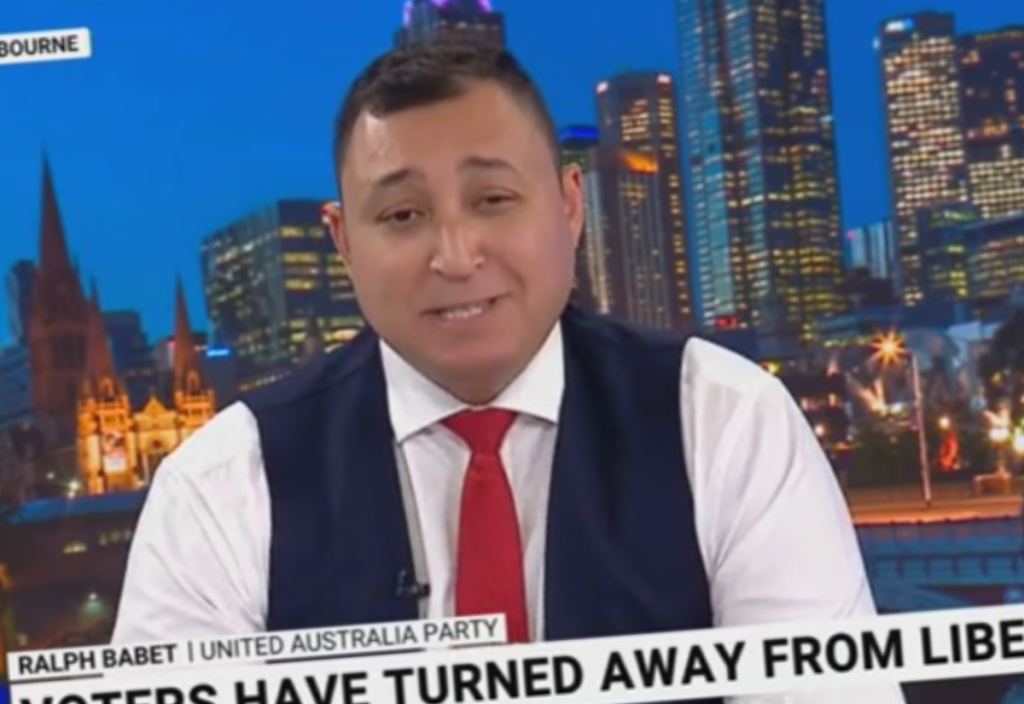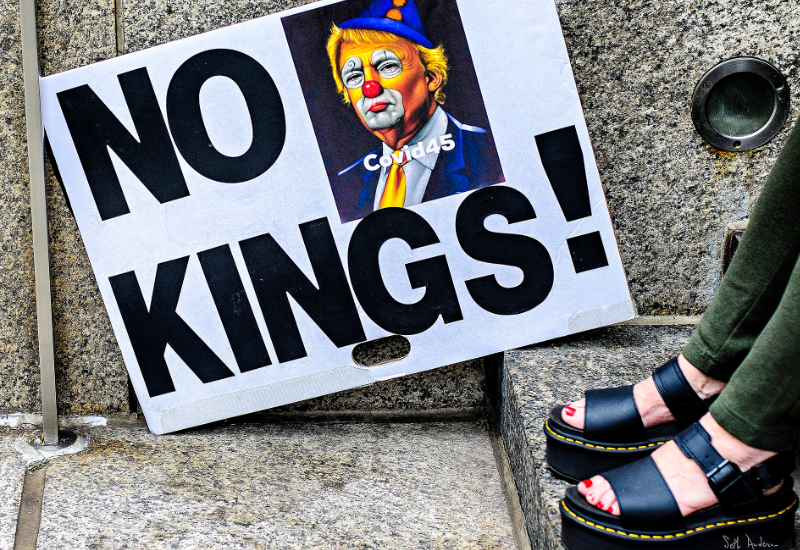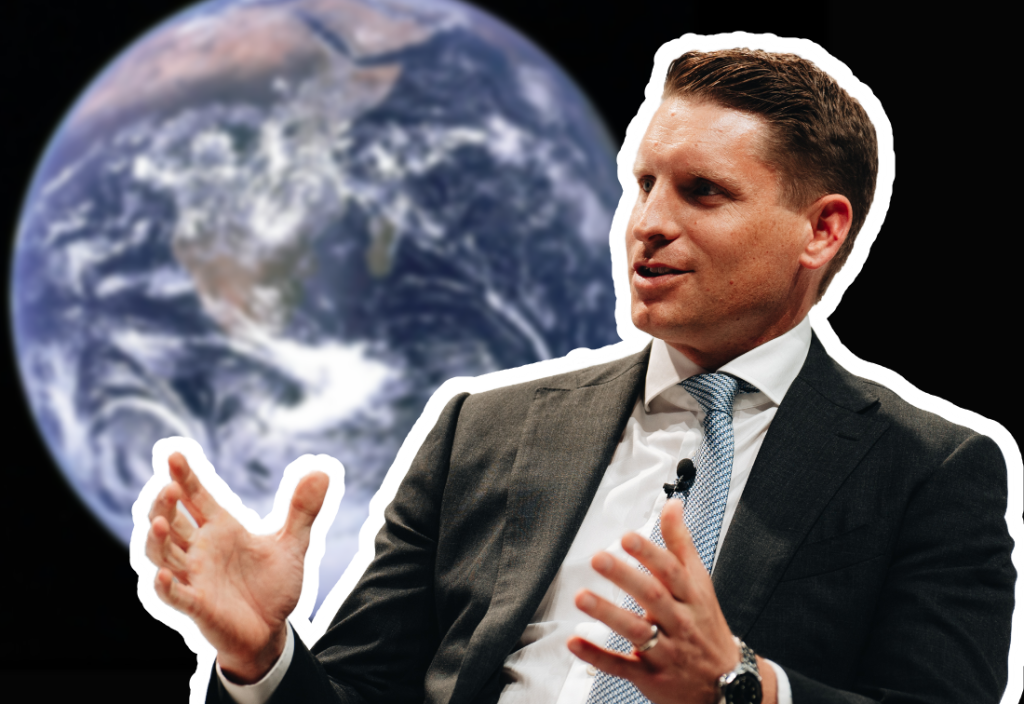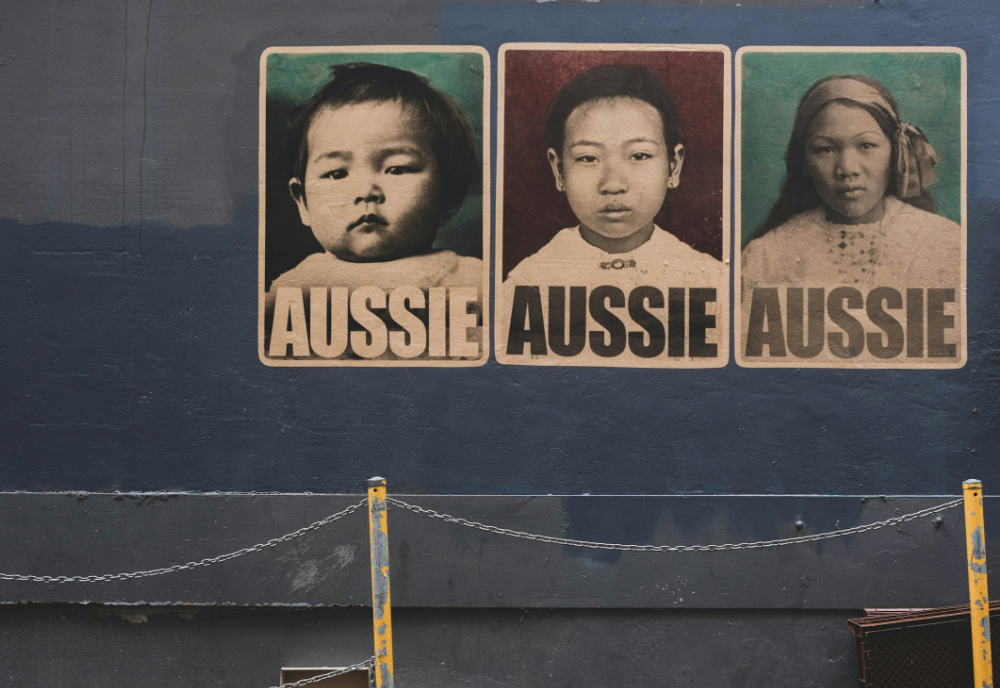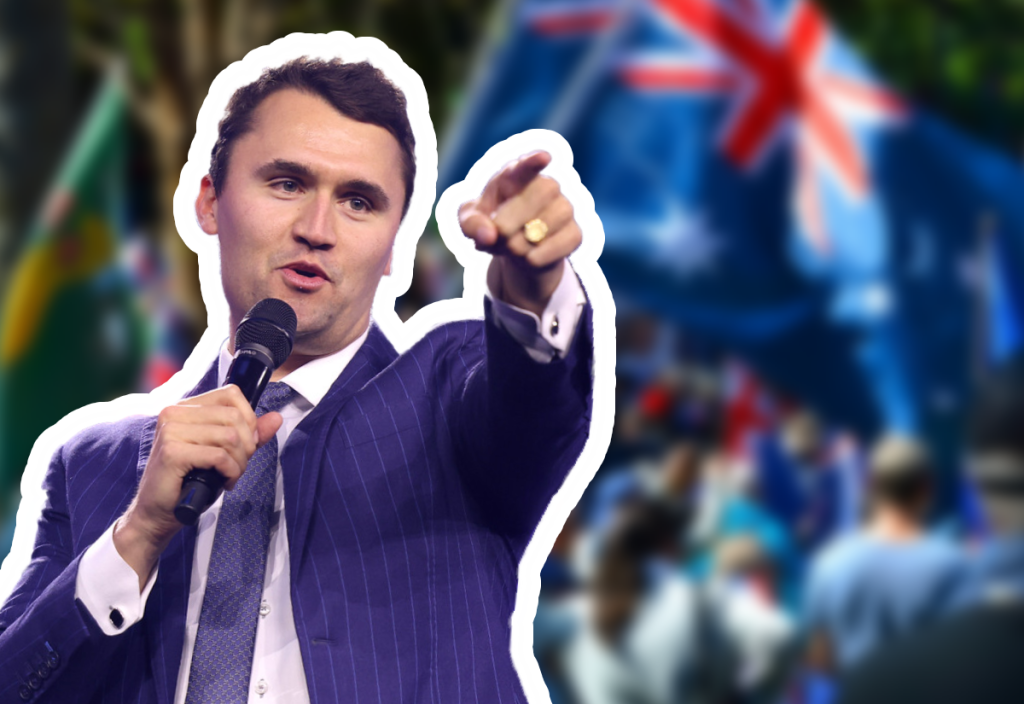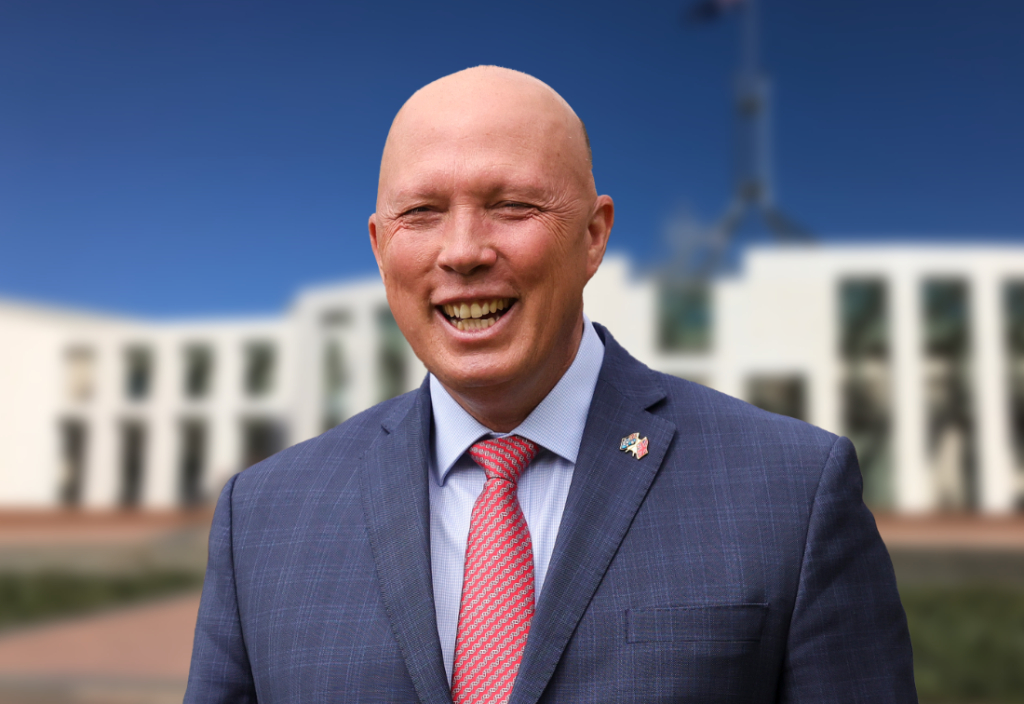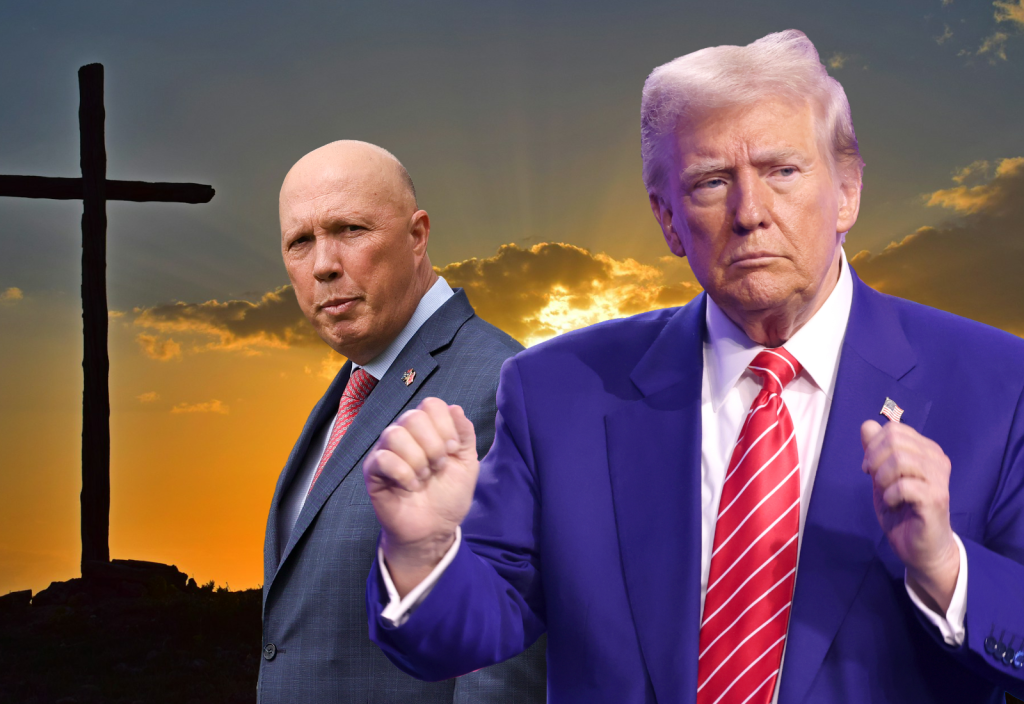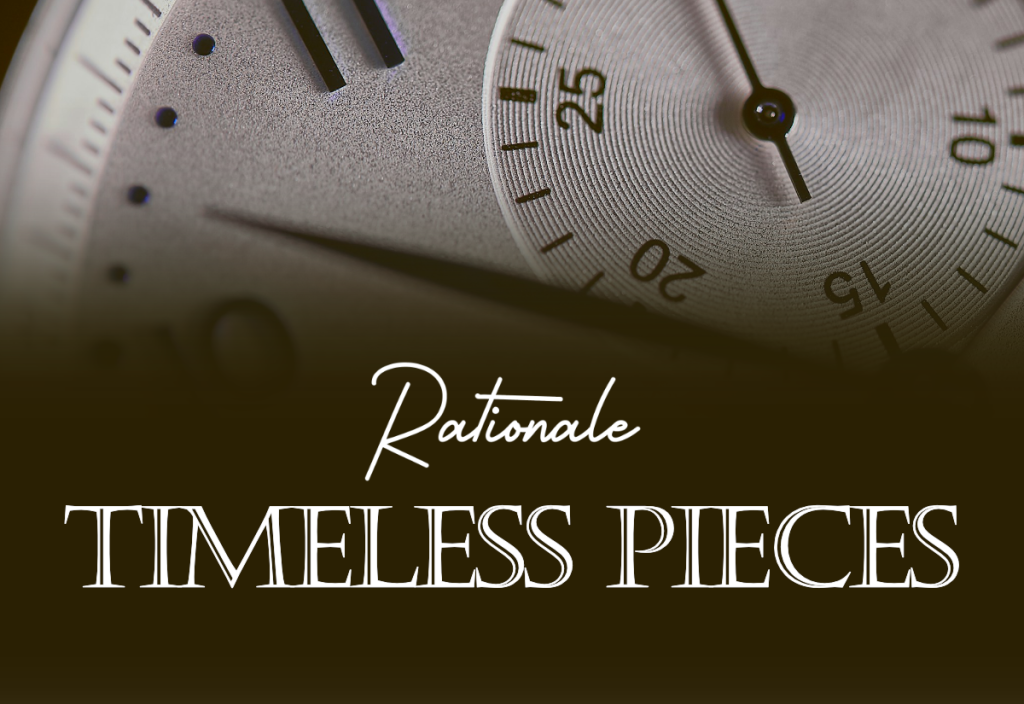Last year, I had a quick conversation with another writer about the difference between the ‘far right’ and ‘extreme right’ when it came to certain movements in Western countries. To him, the extreme right was neo-Nazis. To me, it was fundamentalist churches. I happily conceded the point and we moved on with our lives.
In March, the Venn diagram of far-right and extreme-right ideology overlapped on the steps of Parliament House in Melbourne. I wish I could say I watched in disbelief as Liberal Party MP Moira Deeming took to the microphone beside anti-trans campaigner Posie Parker while neo-Nazis campaigned behind her. But this one was not hard to see coming.
Here’s the thing: you don’t just land out of nowhere and plonk yourself in the extreme right wing. You get there by degrees. We boil the frog slowly but we boil it nonetheless. Your ability to see your trajectory when you are immersed in an ideological movement can be impossible. All you see is the ‘rightness’ of your own opinion, and the cacophony of confirmation bias you see ‘evidenced’ around you.
But as we grapple with how to ensure the safety of marginalised people while battling to retake the political ground lost to the far right, it’s time we talk about radicalisation and how the far right meets the extreme right wing. It’s time we take our societal temperature and see just how close to boiling that metaphorical frog really is.
It might sound like I’m catastrophising, but white Christian nationalism is gaining visibility in the United States, and we would do well to spot it in its infancy in Australia. A year ago, spurred by the findings of the January 6 Committee, the New Yorker reported on white Christian nationalism and warned that this phenomenon was gathering momentum.
Let’s be straight up about this, too: it is a bona fide threat to democracy.
The article explained how the right-ward lurch of the US Supreme Court, the repeal of Roe v Wade and the subsequent battle over women’s rights, as well as decisions on guns, environmental regulation and separation of church and state, were being viewed by researchers not so much as disparate events but “as part of a broader cultural, religious and political phenomenon – one rooted in a specific reading of American history and, in particular, Christianity’s role in it. They call this concept white Christian nationalism.”
While American exceptionalism and history factor in, I would argue those things are less important than the Christian element.
For a long time, Christian colonialism has fuelled the idea that there is a divine correctness in Christianity and that this ideology should be spread to the ends of the Earth as part of Christianity’s ‘Great Commission’.
My observation is that there can be a sort of ‘divine urgency’ built into the pursuit of that ideology and its spread. Add to this the fact that Rushdoony’s ‘Biblical Reconstructionism’ gave rise to the Dominionist idea that there are seven mountains in society that Christians are to take dominion of.
Inherent in that language is a certain militancy and aggression that should send red flags waving due to its diametric opposition to the “sacrificial and loving” nature of Christ. But that seems to matter not a great deal to many of today’s neo-charismatic evangelicals.
In an article in Time Magazine in November, Samuel Perry and Andrew Whitehead remarked:
Christian nationalism is currently a minority position in the United States. Most Americans don’t believe that America has a special relationship with God, or that the federal government should declare the U.S. a “Christian nation,” or that being a Christian is important to being truly American. And most Americans want a separation of church and state. Moreover, tracking such views over decades shows they are slowly declining, not growing. But that’s not what white Christian nationalists believe. In fact, we find white Christian nationalists are uniquely confident about their prevalence and the growth of their own views.
The article went on to show how data indicate that these white Christian nationalists believe that far more people share their views than the number who actually do. The echo chamber surely makes the voice of agreement far louder than the voice of reason. That is why we have every reason to be concerned.
In America, patriotism plays into the white Christian nationalist viewpoint. They believe that America is a Christian-founded nation, and adherence to Christian ideals is the right way for the nation to continue. From my experience of being raised in Australian evangelicalism, I’ve heard many preachers spout similar ideas about us.
While white Christian nationalism can be traced back to the 1600s, Perry points out that it tends to “bubble up when white Christians feel threatened by outside forces – amplified by war, heightened immigration, or periods of economic stability.” I would argue a pandemic could be such a catalyst, especially when an apocalyptic worldview dovetails nicely into that picture.
Growing up, I was taught that this was the end times. I was raised to believe the rapture was imminent and we needed to save the lost. We were told that great trials and tribulations would befall the world, and wars and rumours of wars would signal the second coming.
The fear is real. The triggers are real. The bubbles are there.
The European Union is beginning to pay attention to far-right extremism – appropriately, as I have this gnawing feeling that where the USA goes Australia and Europe tend to follow.
But Google ‘white Christian nationalism’ here in Australia and you do not see much. Or you didn’t until recently. More will emerge, I am sure. But, first, let me tell you this: Australians need to step on this now.
The fact is the right-wing political movement is organised. Early in March in Brisbane, a Church & State Summit was held in Brisbane, featuring a panel discussion around “arming Christians to influence culture” via political activities.
The event was said to have been attended by ex-deputy Prime Minister John Anderson, among others, and featured advice on American strategies that could be deployed by the cohort to increase their influence.
It landed around the same time the Australian Christian Lobby (ACL) sacked managing director Martyn Iles, and signposted its intent to move back into a more politically heavy space rather than the more evangelical approach of Iles.
While the article that broke the news of Iles’ sacking called it “an identity crisis”, I don’t believe that to be the case. I believe the ACL is still the same group it always has been – still heavy with hyperbole, fear-mongering, and, from what I’ve seen, a little light on actual facts.
Now it is taking the numerical gains reached under Iles and throwing them behind what I can only guess would be the dark art of lobbying, making it dangerous for any politician to engage with them.
Two years ago, another Church & State Summit boasted speakers like Iles, George Pell, Senator Matt Canavan, and then National MP George Christensen. Host of the annual conference, blogger David Pellowe, has been photographed with the white national group the Proud Boys.
Pellowe’s website, journalist Paul Greggoire argued in 2021, would appeal to the National Socialist Network and former Senator Fraser Anning.
In 2021, the National Socialist Network was the subject of a documentary and investigation into neo-Nazism, and consisted of white supremacists who have faced calls for them to be classified as a terrorist group.
Australia is fresh off the back of an inquiry into extremism. But not enough people know about the findings from the Victorian parliamentary committee. The inquiry cited growing concerns about the far right and argued for the widening of the scope of “violent extremism” beyond Islamic terrorism “in an era of alt-right and populist impulses”.
Key themes emerging in the research into far-right extremism included “mutually enforcing” far-right and anti-feminist sentiments, with anti-feminism appearing “to be a ‘uniting ideology’ in far-right extremism”.
I admit this link between anti-feminist sentiment and far-right extremism was jarring to read, but findings in Europe seem to indicate the same or similar things.
On the surface, it might seem that the Melbourne protest was atypical in that it was a ‘Let Women Speak’ event. But this particular branch of feminism was the territory of TERFs – trans-exclusionary radical feminists. And that is a topic that overlaps with the chauvinistic, traditionalist, anti-progressive sentiments that do track as on-brand for far-right extremism.
This is all good in theory. But what is the lived experience? Certainly, my experience in right-wing life included anti-feminist ideals, including feminine submission and traditional gender roles, and ideas such as God’s government being higher than the government of man, and the need for traditional values over ‘ungodly’ progressive values.
My experience was so immersive, so sincere, so echoic that I believed there to be eternal consequences should I fail to live this way and reach other people with this ‘truth’. I say “echoic” because no one in my immediate circle would have been able to correct me.
Having been home-schooled, immersed almost daily in church activities, and completely surrounded by people who subscribed to the same school of thought and doctrine, there was no-one in my world who had enough free thought or influence to challenge problematic concepts.
I write this because it’s fine to be enraged. It’s nice to think you were never part of the problem. But I was. I was anti-feminist and anti-choice. I believed things about LGBTQA+ people that today make my stomach churn.
Yes, I concede I was raised in this way of thinking, completely surrounded by people who echoed and reinforced these doctrines. I had little agency in my formative years. I am buoyed every time someone says, “You always seemed different,” but it doesn’t ease the pain of knowing that, had I not married the man I married and had he not offered me the safety and protection to leave that group, I may have been at that rally.
I wouldn’t have seen my proximity to neo-Nazis made me part of the problem. The cognitive dissonance would have been rattling around in my head, and I would not have seen the overlapping Venn diagram of anti-trans hate and antisemitism/racism/domestic terrorism.
I would not have identified as a Nazi if I were there. I would have spouted the ideology that the Jewish race were God’s chosen people and lamented that the campaign’s message would be overshadowed.
But this is the danger. People who have been radicalised in – or into – these groups rarely see themselves for what they truly are. We tell ourselves that we are doing God’s work, standing up for what Australia needs, and saving people. We tell ourselves we are not homophobic because we have a gay friend, and not racist because we have people of colour at our churches.
Maybe not all of us are racist. I certainly don’t think I ever was. Heck, the presiding apostle of the network I was in was a Malaysian man of Tamil Indian descent. But I did not see, believe in or acknowledge the privilege I had as a white woman, or the ways in which systemic racism affects people of colour. I sit with this heaviness now.
I was inside the Dominionist movement that set out to infiltrate politics and bring the will of God on Earth through influencing politics and gaining political power. I read the emails from our international network head – emails that instructed us on what to do.
People who have been radicalised in – or into – these groups rarely see themselves for what they truly are. We tell ourselves that we are doing God’s work, standing up for what Australia needs, and saving people.
I was in meetings where political dominion was discussed. I was in meetings and social situations where anti-gay and anti-trans rhetoric was discussed. I was a partner in a ‘Kingdom business’ that was part of a church effort to have 20 ‘kingdom businesses’ in my town by the year 2020 and take dominion in the business district. I discipled younger members of the church towards finding their area of dominion and chasing it down.
I did it all in service of what I then thought to be a loving God. But, from what I now see, it was founded on the idea of total depravity outside the bounds of Christian, anti-LGBTQA, complementarian anti-feminist legalism.
I believed we were custodians of a higher truth — a higher law. I read books about martyrdom and was willing to “lay down my life for the cause”. Yes, that was the exact line repeated ad nauseam in my world.
There was even scripture in there. “The kingdom of Hell suffers violence, and the violent take it by force.” What was the meaning of that? If you were not for us, you were against us. And we were on a mission from Heaven.
Read into that what you will. I am confessing for me and only me. But I am telling you my belief that this rhetoric still goes on, that this strength of conviction and commitment still exists in groups like the one I exited.
It was hard for me to look in the mirror when the scales first fell from my eyes. Was I homophobic? Even though two of my best friends were gay, and I was married to a man who “used to be gay”.
Was I transphobic? No! I wasn’t afraid of these people! I believed that Christ in me was the answer for them. If I read the research on the profound damage that sexual orientation and gender identity change efforts left or the data on their overwhelming failure to do anything it claimed to do, I would have explained it away.
When you are brainwashed, you cannot afford not to explain it away. Your entire identity, security, social situation, goals, and worldview are wrapped up in this call, this move of God, this group sent to save the lost. This ‘Heavenly mandate’.
I was sparkly and vivacious, but miserable and traumatised. I changed my mind quietly long before I finally got out. And getting out cost me a lot. So did staying quiet for seven years. So did speaking out last year – though it made my soul lighter.
I am making the decision to be vulnerable here and fess up to what I believed because I want you to know this: people don’t know they are radicalised. You cannot pop that bubble for them all that easily.
If you are radicalised into far-right Christian ideology, you are a long way down a continuum that leads nowhere good, and it is unlikely you can see it for what it is. That is why we need to see it and slow or stop the creep of radicalised or far-right groups into positions of power.
At every step of the way, selective evidence, confirmation bias, and even the Bible can be cherry-picked within a persecution complex paradigm to confirm dangerous ideas. Do it individually, and it is bad. Do it legislatively, and it is disgusting. Do it societally, and history tells us through other means where that leads.
You might say that right now I am catastrophising. Certainly, I am painting a dramatic picture. But I do it on purpose because while the far-right argue the slippery slope of trans and gay rights, and take to the streets to protest as they did in March, they are, in fact, on a slippery slope of their own.
I do not expect anyone from that cohort to see it. Looking back, I am surprised that I did. I was the eldest daughter of Christian ministers, raised on the idea of dying to self so that Christ could live through me. I was raised to “know” the world’s wisdom was inferior to the inexplicable, revelatory wisdom of God. I was of a higher order, chosen for such a time as this to seek and save the lost.
I was wrong.
That is why we need to be aware of radicalisation. Radicalisation is a process. It is best explained as when a person undergoes “a transformation over a period of time”. It can be gradual or quite fast.
I was trained to look for moments in people’s lives when they might be more open to the idea of God – such as the death of a partner or parent, or the loss of a job, a personal crisis, an unhappy or abusive relationship or an outside crisis that might destabilise them.
These were moments when a friendship could be struck. After a friendship was solidified, I was trained to introduce more friends from my group, and then bring the target person to church events before inviting them to church.
If you look at the ACT Early website from the United Kingdom – instructing us on what to look for when spotting radicalisation – these things all ring true as trigger points.
There are said to be four stages in radicalisation. They are: 1) the pre-radical stage when a person joins or identifies with a group or organisation; 2) the self-identifying stage when the person accepts the beliefs and views held by the group or organisation; 3) the indoctrination stage occurs as the person is groomed by the group or organisation, pulling them further down the pathway of transformation; and 4) the terrorism stage when a person becomes involved in committing terrorist acts.
In my opinion, most concerning churches and groups stop at the third stage. They do not encourage terrorist acts. Mine certainly did not encourage terrorism. It is important to clarify: at no point did it endorse terrorism in any way.
My concern is that these ideas lay the kindling. The outside world can bring the kerosene and the match. We rely on safeguards like the Ten Commandments, Christian and pseudo-Christian morality, and common sense to ensure this goes no further. But is that enough for all people in all far-right and extreme-right churches? One can only hope and watch.
It is difficult for me to read websites that chart the progress of radicalisation and recognise it to be a road I was on. It is harder still to watch fringe groups develop and thrive during difficult times like the pandemic.
I watched conspiracy theories take hold in certain groups of people during that period. From my vantage point as an ex-evangelical writer and podcaster, I watched as the far-right talk in many American and non-American churches, and church-adjacent groups, took on some truly strange undertones.
I’m thankful that life afforded me the opportunity to wake up. Many will not and will continue down that slope of radicalisation.
Progress is not a given. The right wing is organising and fighting back, slowly and quietly behind the scenes, and politically, organisationally and pseudo-religiously. It is hiding, but in March we saw it in plain sight. May we have woken to the danger in our midst.
If you wish to republish this original article, please attribute to Rationale. Click here to find out more about republishing under Creative Commons.
Photo by DJ Paine on Unsplash.

